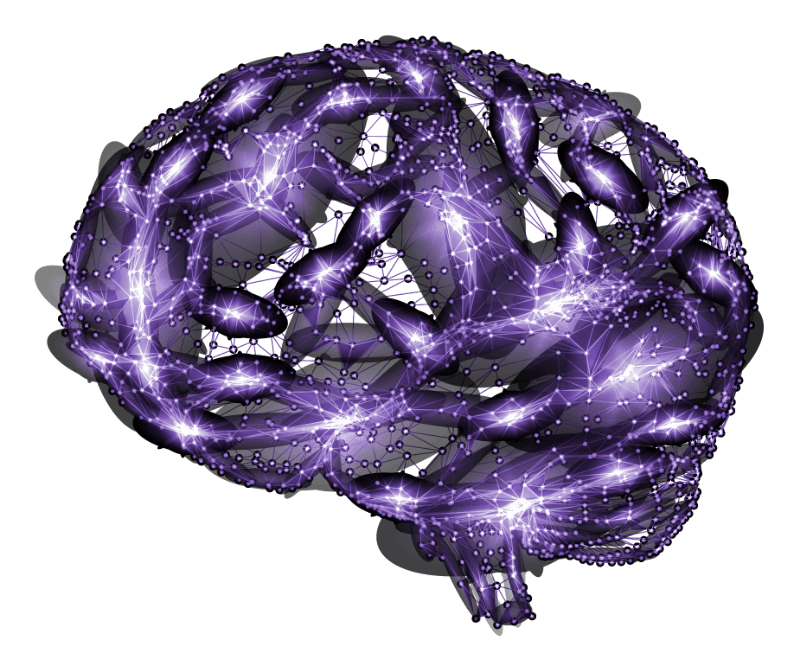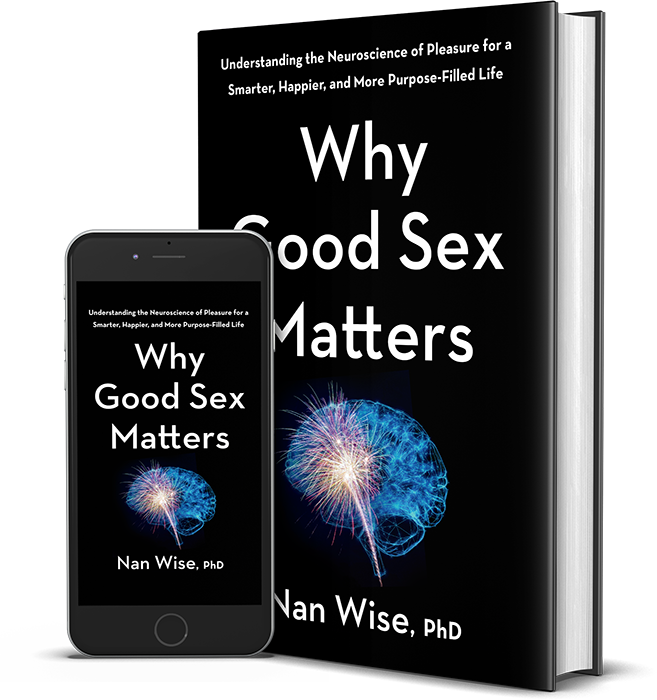When I wrote my book Why Good Sex Matters, I used the lens of what’s happening in our sex lives as a window into our emotional brain. Our relationship with our sexuality gives us a way to assess our capacity for pleasure and evaluate the functioning of the emotional brain. I have come to see our pleasure issues like the proverbial canary in the coal mine—a warning signal of an emotional brain out of balance. Just as learning, memory, and decision-making are tied to emotional processes, our sexual experience—the desire for sex, how sexually satisfied we are—our sexual potential—are also linked to core emotional states that are wired into the brain. When these systems are out of whack, we will feel blunted in our ability to experience pleasures, sexual or otherwise.
What Are the Core Emotions?
We humans, just like other mammals, are born with emotional operating systems or “instincts” that are hard-wired into the evolutionarily oldest parts of the brain, what I affectionately call the “brain’s basement.”
How Do We Know About These Systems?
The late neuroscientist Dr. Jaak Panksepp, through decades of meticulous experimental work, established that all mammals have seven distinct circuits buried in the deep, ancient parts of the brain—which, when experimentally stimulated, evoke specific emotions (responses that get us to move into the world) to meet our needs. These core emotional systems—SEEKING, FEAR, RAGE, PANIC/GRIEF, LUST, CARE, and PLAY—serve as the “primary colors” of our basic emotions, which, in concert with the higher brain regions, drive our emotional lives.
A Very Brief Introduction to The Core Emotions
The predominant system is called the SEEKING system (as it is designed to motivate us to find that which we need). As such, it also helps to regulate the other systems, which fall into two categories that are about ensuring our survival: the defensive emotions (FEAR, ANGER, PANIC/GRIEF) and the social emotions (LUST, CARE, and PLAY). Together these seven core emotional states are wired into our human DNA.
SEEKING = Motivation
To survive, we must automatically seek what we need. This is true of food, air, water, safety, love, companionship, and sex. Pleasure is embedded into these basic survival needs. As such, the experience of SEEKING can be highly pleasurable under the right conditions. However, when we get stuck in the SEEKING system, which is powered by dopamine, we can start looking for the right things in all the wrong places! We get hijacked. Sound familiar?
The Defensive Systems
FEAR = Scared
We are born with an innate fear response designed to protect us from danger. All vertebrates have evolutionarily encoded the ability to recognize external threats that reliably cause pain or predict danger. For humans, our FEAR system is relatively flexible. Other than being innately afraid of pain and evolutionarily based tendencies such as fear of heights, snakes, and spiders, we learn to fear other things through our experience. But what is clear is that all mammals are exquisitely wired to quickly and robustly learn to respond to a vast array of stimuli that predict dangerous stuff —stuff we indeed come to FEAR.
RAGE = Angry
A balanced RAGE system is associated with appropriately being able to de‐ fend against threats. It also allows us to take appropriate stands when angered that are constructive and facilitates the resolution of conflicts.
An overactive RAGE system can cause a hair-trigger temper and high hostility levels, compromising our ability to enjoy life. An underactive RAGE system can interfere with our ability to set boundaries and stand up for our needs.
PANIC/GRIEF = Anxious/Sad
This system contributes to protecting our “life-sustaining social bonds” and is built into our brains to protect us by keeping us close to significant relationships and resources that are critical to physical survival and emotional “thrival.” Built in to keep us connected to others—essential for a social animal—this system gets triggered when we lose a loved one. It is the source of our grief and the neural substrate of heartbreak.
The Social Emotions
CARE = Love
Powered by our own internal opioids, a balanced CARE system is associated with feelings of well-being and security in relationships. Those with balanced CARE systems will have at least one or two close, reliable sources of support and regularly engage in social activities. They can love those closest to them without needing to control them. They are also in touch with the capacity to self-love and practice self-care.
An overactive CARE system typically shows up as an inability to comfort yourself because you are overly attuned to others. When this system is underactive, it can hamper the ability to nurture or form lasting social bonds.
PLAY = Joy
PLAY is the joyful occupation of all young mammals (and some other lucky critters, too). Play is how we learn to explore and experiment with ourselves, each other, and the world and learn how to socialize. The PLAY system tends to be highly developed in the young but begins to ebb for many adults.
A balanced PLAY system is indicated by an adult who has a good sense of humor, continues to know how to relax and have fun, how to amuse oneself, has hobbies or interests, and otherwise enjoys the zany aspects of life.
When PLAY is overactive in adults, it can manifest as the refusal to engage in mature adult behaviors—the perpetual Peter Pans.
The PLAY system can only be expressed when the person feels safe, whether it be an adult or a child.
LUST = The Urge to Merge
Mother nature has enduringly wired all animals with a primary urge to merge. On one level, it appears to be about the survival of the species, but it goes deeper. Our sexuality creates connections that enhance our relationships and bond us deeply.
When the LUST system is in balance, we experience a desire for sex and satisfaction when we have it. We feel comfortable with our desire level and are open to exploring ways to experience pleasure. An overactive LUST system typically shows up as some form of out-of-control, compulsive, inappropriate, or harmful sexual behavior. An underactive LUST system usually shows up as a lack of sexual desire.
In Conclusion
Balancing SEEKING + CARE + PLAY + LUST = Big fun in and out of the bedroom
The ability to experience pleasure is not a luxury. It is a necessity for a well-balanced emotional brain. Forget about the sex drive. Focus on getting back your pleasure drive. This is the first step to reclaiming a life worth living and loving. Stay tuned for more about why core emotions matter and how to balance them.




